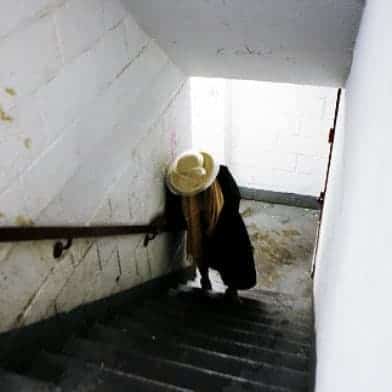
Toilet Traumas
Toilet Traumas
I am a huge fan of your column, but because my property managers are usually pretty great and responsive to problems, I never thought that I would have a question for you.
However, I have an ongoing problem with the toilet in my bathroom, which has been “fixed” twice before already (I’ve lived in my place three years), but is acting up again. The problem has to do with the hose that fills up the tank that holds the clean water; it gets clogged and then will suddenly spray water all over my entire bathroom–often when I’m doing things like….oh…trying to get ready for work in the morning.
Anyway, this same thing just happened again, for the third time. Since it happened on a Sunday, I had to call the “emergency line” for my property managers. I left them a voicemail, but never heard back. They will be in the office on Monday, and by the time you answer my question, I’ll have dealt with this issue, but since I’m sure I’ll have this plumbing problem again, I thought I’d ask for future reference: If I have called several times and can’t get in touch with the property managers, and if the toilet is unusable (which it is), is it within my right to call a plumber myself, have that person fix it, and deduct that bill from my next month’s rent?
My other question is this: at what point can I get a “second opinion”about the plumbing (and I’m prepared for your answer to be “never,” if that’s the case)? I feel that the problem with my toilet may even be the toilet itself, or even the pipes (the pipes in my neighbor’s apartment sprung a huge leak in Dec., sending a flood of water into the restaurant below his unit. What I’m saying is that I have a feeling whatever “fixing” has occurred with my toilet may just be temporary “quick-fixes” designed to stave off replacing things (like the toilets and maybe even the pipes) that need to be replaced rather than “repaired.” So…if I think that’s the case, can I call out a plumber to assess what’s happening with my plumbing and see how that person’s “diagnosis” compares to the one arrived at by the contractor who works for my property managers?
I’m channeling Dr. Leonard “Bones” McCoy, the irascible doctor from the original Star Trek: “Dammit, Jim, I’m a lawyer, not a plumber!” Except that I was a plumber of sorts in a past life. Back in my painter/handyman days, I crawled under a lot of toilets. No, I’m not going to regale you with any anecdotes about what you can find there.
Let’s face it; toilets are a big part of our lives. That’s why you should know how they work.
If you are experiencing a leak in the supply tube or supply line, the spray or dripping will likely occur at the fixture connecting to the tank or the pipe coming from the wall. There should be a valve at the wall as illustrated. If there isn’t a valve, the landlord should install one. If the supply line leaks, you should be able to turn it off.
In older buildings, the line could be ¼ inch copper tubing. Usually that’s the culprit. Copper tubing can crimp and bend at the fitting points and lose the ability to seal. When I was working in the trades, we routinely replaced copper tubing with flex hose. You can go to Cole Hardware or any plumbing supply store and find the appropriate length for about five bucks. Turn off the water, remove the old supply line and replace it with the flex hose.
Or print this and show it to the management repair person.
If the leak is or spray is coming from the valve, it should be replaced. It is unlikely that the line is clogging up. If it is that means there is something wrong with the water supply.
You’d likely see clogging in other faucets in the unit. That’s a problem, you’re drinking it!
Indeed, given your description of the neighbor’s leak, there could be serious issues with the plumbing.
California Civil Code §1942 provides that a tenant can “repair and deduct” if the tenant gives the landlord reasonable notice and if the amount is less than one month’s rent. The law presumes that reasonable notice is 30 days unless circumstances warrant otherwise.
In your case, it would be reasonable to call a plumber and bill the landlord because loss of the toilet could be considered to be an emergency. If, at the end of the month, the landlord serves a three-day notice to pay the amount you deducted, pay it. Then file a petition for decrease in services with the Rent Board.
You can always get a second opinion, just don’t expect the landlord to pay for it.Depending on other conditions in the apartment, you may want to call a Housing Inspector from DBI.
Next week I’ll talk about jiggling the handle and “Oh my God! What’s that?!”







 The Costa Hawkins Rent Housing Act, a bi-partisan law enacted in 1995 by the band of pandering griftocrats we call our state legislators, that eviscerated local rent control.
The Costa Hawkins Rent Housing Act, a bi-partisan law enacted in 1995 by the band of pandering griftocrats we call our state legislators, that eviscerated local rent control.

